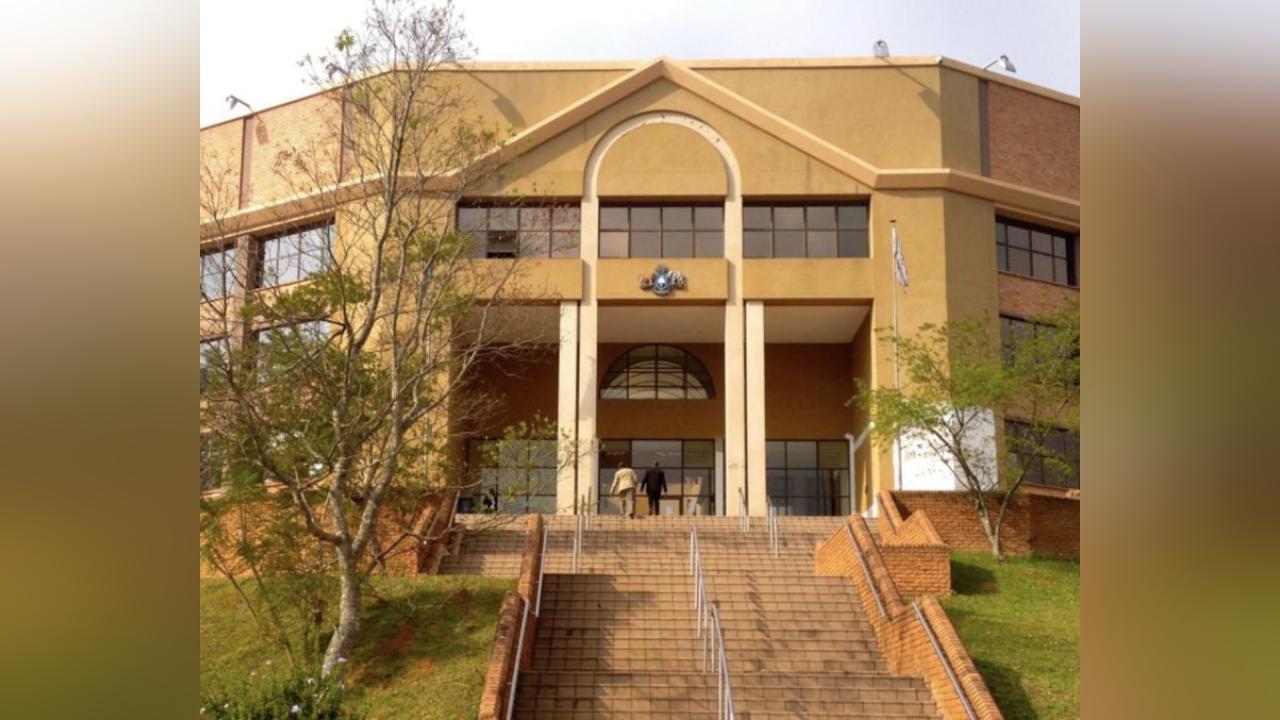Africa-Press – Eswatini. Corruption and rot at the Treasury Department is said to have escalated to a point whereby suppliers have to solicit assistance from influential members of society for them to be paid.
Some of the suppliers, who had to resort to external intervention in order for them to be paid for services rendered, had to request members of the royal family and or Cabinet ministers as they were supposedly given a run-around by officials. One of the aggrieved parties, who contacted this publication following its report on a female civil servant who was allegedly siphoning money from government coffers by transferring large amounts into her child’s bank account, said getting a payment from government through the Treasury Department was a huge challenge.
Hand lotion
She disclosed that some officials within the department requested a ‘hand lotion’ for them to fast track her payment. The businesswoman said her refusal to do that resulted in her payment being stalled, while those who had rendered services and or supplied goods to government after her were paid. ‘Hand lotion’ is a lose term for payment to fast track the payment of the owed money. The businesswoman claimed that the ‘hand lotion’ sought was 10 per cent of the total amount to be paid to a particular supplier. She said this was just a ridiculous demand and her conscious could not let her engage in it as this was depleting any profits she could have made.
Facilitating
“I didn’t know that when quoting for government you have to include the 10 per cent, which is later required for facilitating the payment and when they wanted it, I told them I did not have their ‘hand lotion’,” she said. The businesswoman said this concern had been made at various stages with the Ministry of Finance. She said a number of businesspeople had shared with her that the officials decided on what to demand as a ‘hand lotion’, based on the amount they were paid. The entrepreneur said the officers had to be shuffled and redeployed to other departments regularly, as there were allegedly many corrupt acts which had become a norm at the department. Rhetorically, she asked how were the entities not deserving to be paid included on the list of suppliers.
She decried that many businesses had gone under due to delays in payment and or demands for bribes while on the other hand, government delayed payments. The entrepreneur said some of the officials had made demands of amounts such as E20 000 for them to facilitate the payments. This, she said, resulted in other businesspeople dying from depression as they failed to cater for their obligations, such as paying their employees and suppliers. “The article you reported on is a fraction of the rot in the department. These people own assets valued more than their salaries and the question is how they are funding this,” she alleged.
Motivated
The businesswoman wondered on what motivated the reasoning of the civil servants to demand money for delivering a service which they were remunerated for. She said there were reports that some civil servants assigned to the department had been there for over a lengthy period and if it were according to her prayers, some of the personnel would be redeployed.
Such an act, she said, should be engaged on regularly as the demand for bribes affected the business community and further increased unemployment in the country. After her refusal to pay the ‘hand lotion’, the entrepreneur said she had to seek the intervention of influential people in order to get the dues, including a member of the royal family. This, she said, infuriated some of the officers as it brought attention to their acts.
This publication further established that other entrepreneurs used connections with influential members of society in order to avoid paying the bribes. The businesspeople supposed that they were frustrated at instances by the 10 per cent as it escalated the money to be disbursed for absolutely nothing. They supposed that for an arrear of about E10 million, the 10 per cent became equivalent to E1 million, which was quite steep and uncalled for. They expressed hope that the investigation by the police would uncover other aspects of the corruption, which may in turn bring order to the department.
Accountant
It is worth noting that a matter involving an accountant, who was stationed at the Ministry of Tinkhudla Administration and Development, is currently pending at the High Court. Mbongeni Mkhwanazi, who was employed as an accountant in the ministry, and his duties included processing payments to service providers and/ or suppliers of goods of the Decentralisation Department, features in all 18 counts. The accused persons have been charged for contravening the Prevention of Corruption Act No. 3 of 2006 or alternative counts of fraud. In total, they allegedly diverted E5 105 785 from the ministry, through unlawful misrepresentation, purportedly made by the accused persons to the Treasury Department and / or government. Also, last year, it was reported that the country was losing about E91 million per month, due to corruption at government ministries and departments.
…some officials accused of adding fake beneficiaries on suppliers’ list
MANZINI – Some officials are said to be adding the names of fake beneficiaries on the list of suppliers to be paid by government. A source informed this publication that some of the corrupt individuals added the fake beneficiaries on the list of the suppliers submitted by different ministries to the Treasury Department. The sources claimed that the list was checked at all various instances within the different ministries and approved by the specimen (people authorised to sign for payments).
It was gathered that once all this was done, the lists were sent to the Treasury Department wherein a corrupt officer when given a list of suppliers to deposit money into, would then insert few bogus suppliers’ accounts. Thereon, the source said the corrupt officer could then recoup the money once it was paid to the account inserted as a supplier. The source supposed that this could involve other parties as there needed to be authorisation at some point. It is worth noting that last year, this publication reported that Eswatini is among the most corrupt countries in the world as it ranks 122 out of 180 States and territories. This was according to a report by Transparency International. The report was published on April 8, 2022, and is an assessment of 2021. Transparency International is a global movement which works in over 100 countries to end the injustice of corruption by promoting transparency, accountability and integrity.
…minister waiting for answers from relevant department
MANZINI – The Ministry of Finance is yet to respond as relevant officers are dealing with the matter. The Minister of Finance, Neal Rijkenberg, who is out of the country on government business, said he had forwarded the questions to the relevant department and was awaiting responses yesterday when the article was compiled. A questionnaire sent to the Ministry of Finance Communications Officer, Setsabile Dlamini, had sought to establish what government was doing to strengthen its systems to ensure corruption was curtailed. Dlamini was also asked what government was doing to deal with the ‘cabal’ involved in the corrupt acts, which included the duplication of invoices and demand for bribes to facilitate payments.
She was questioned on whether there were systems ensuring that not one officer was responsible for disbursing funds and also asked what were the checks and balances of ensuring that there were no funds taken from government illegally. “There are claims that officers seek 10 per cent from government suppliers and service providers in order to ensure that the suppliers are paid on time. Has this been reported to the ministry? If yes, what has been done to deal with it? If no, now that it has been brought to your attention, what will the ministry do? On average, how much is lost by government to corruption per month due to such acts?” these are some of the questions asked.
For More News And Analysis About Eswatini Follow Africa-Press







